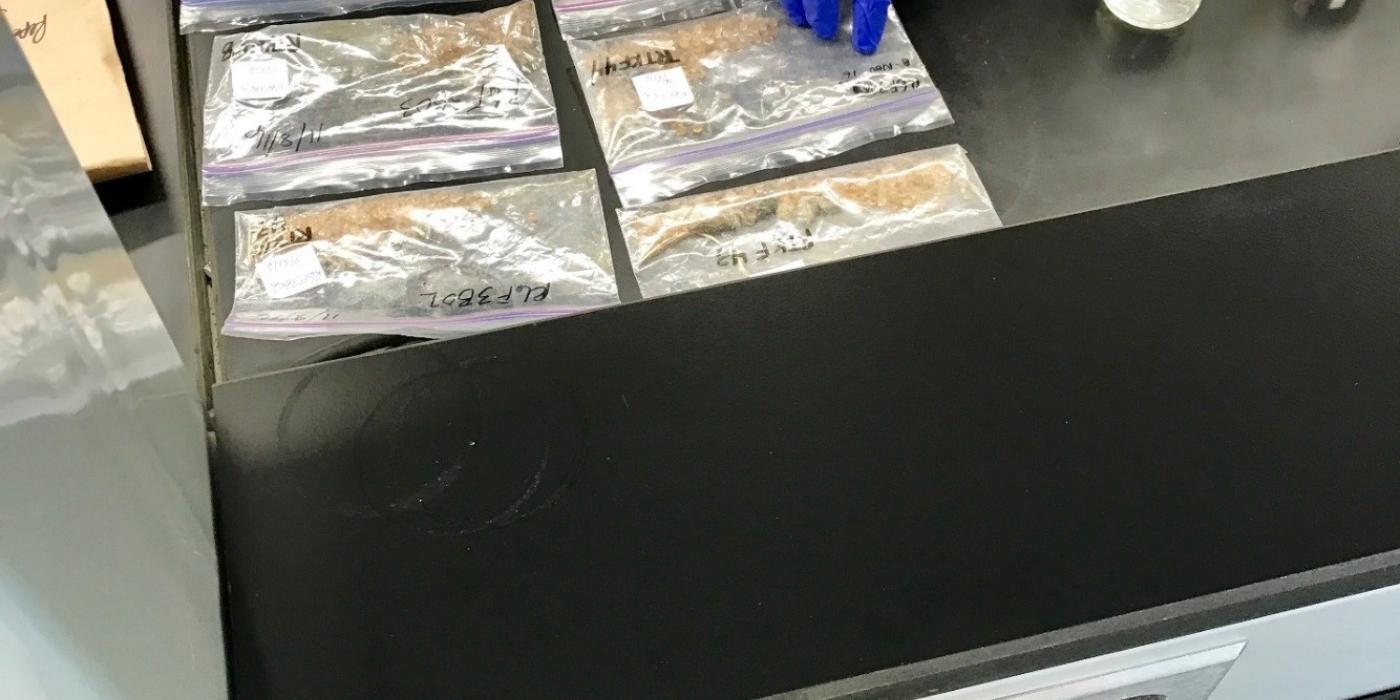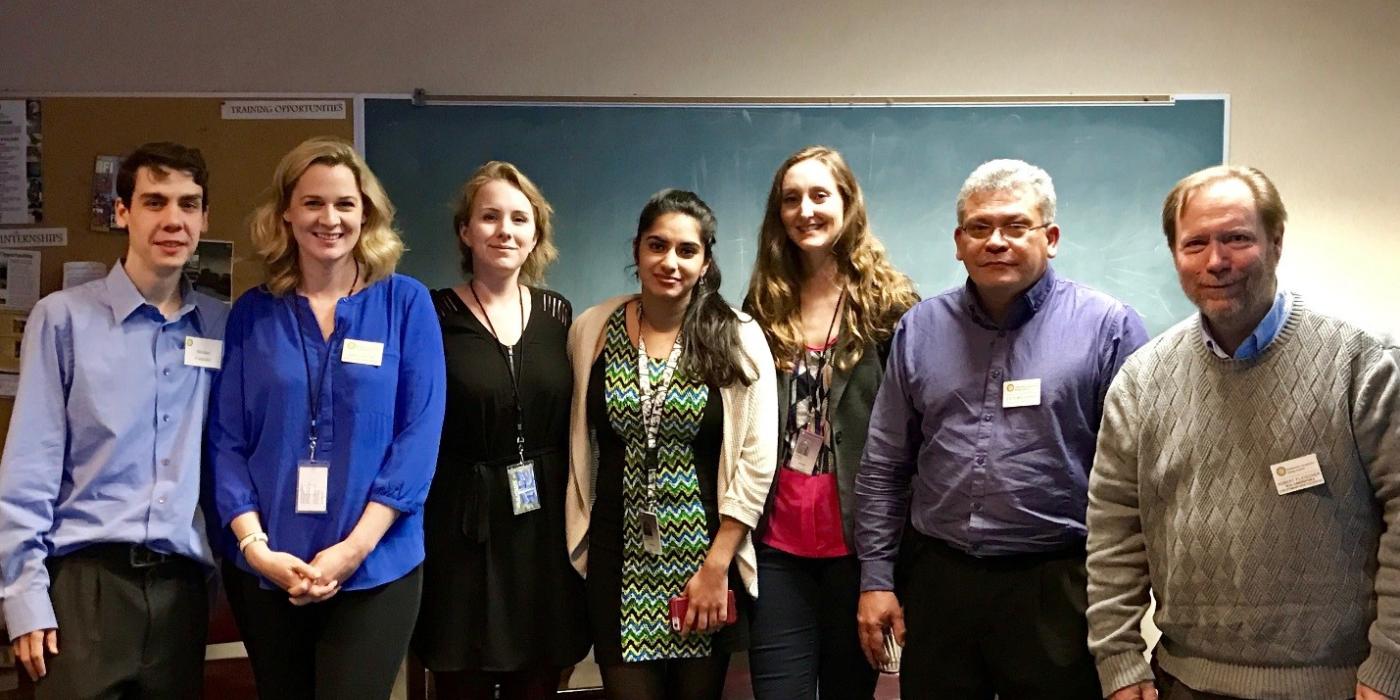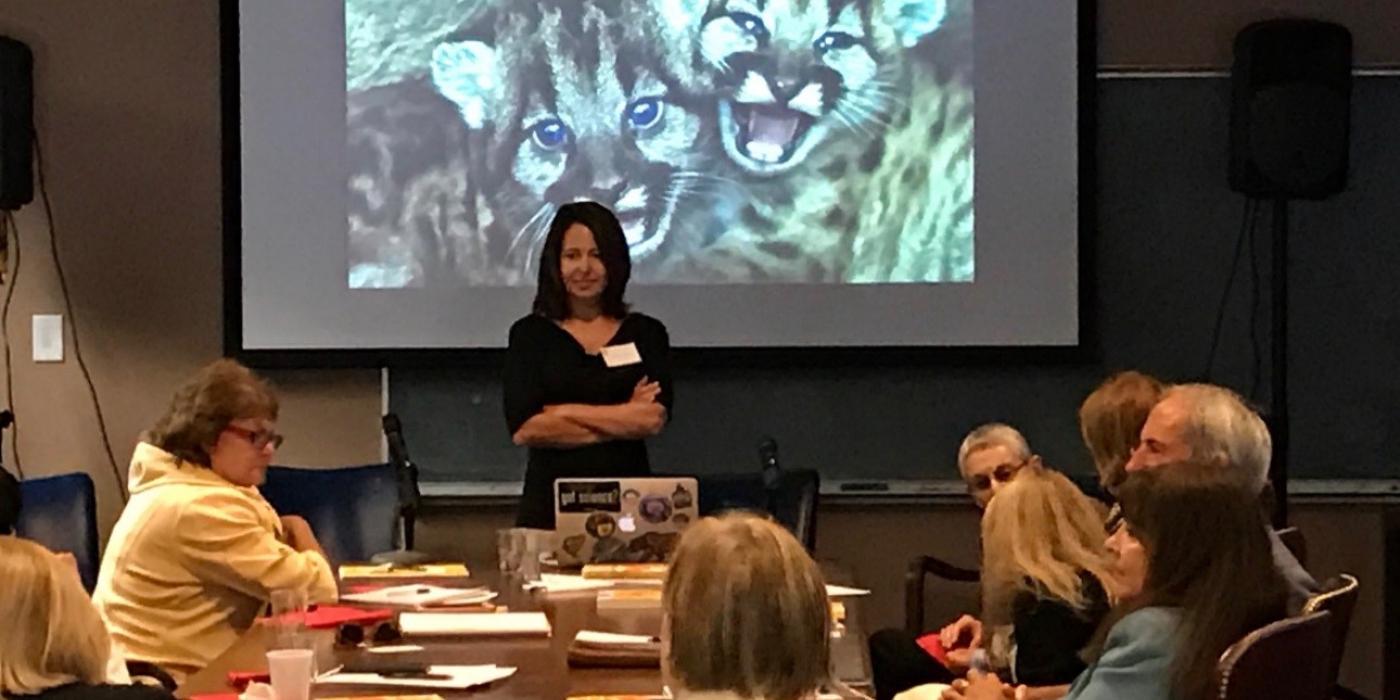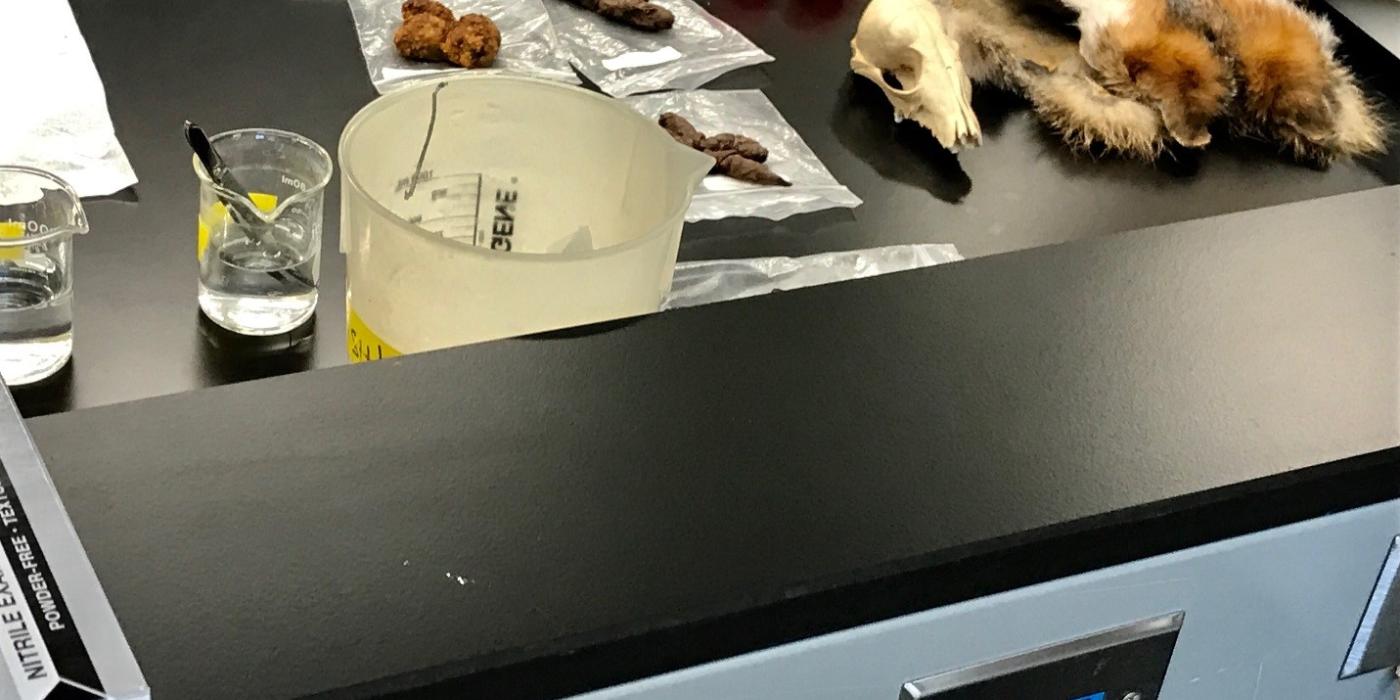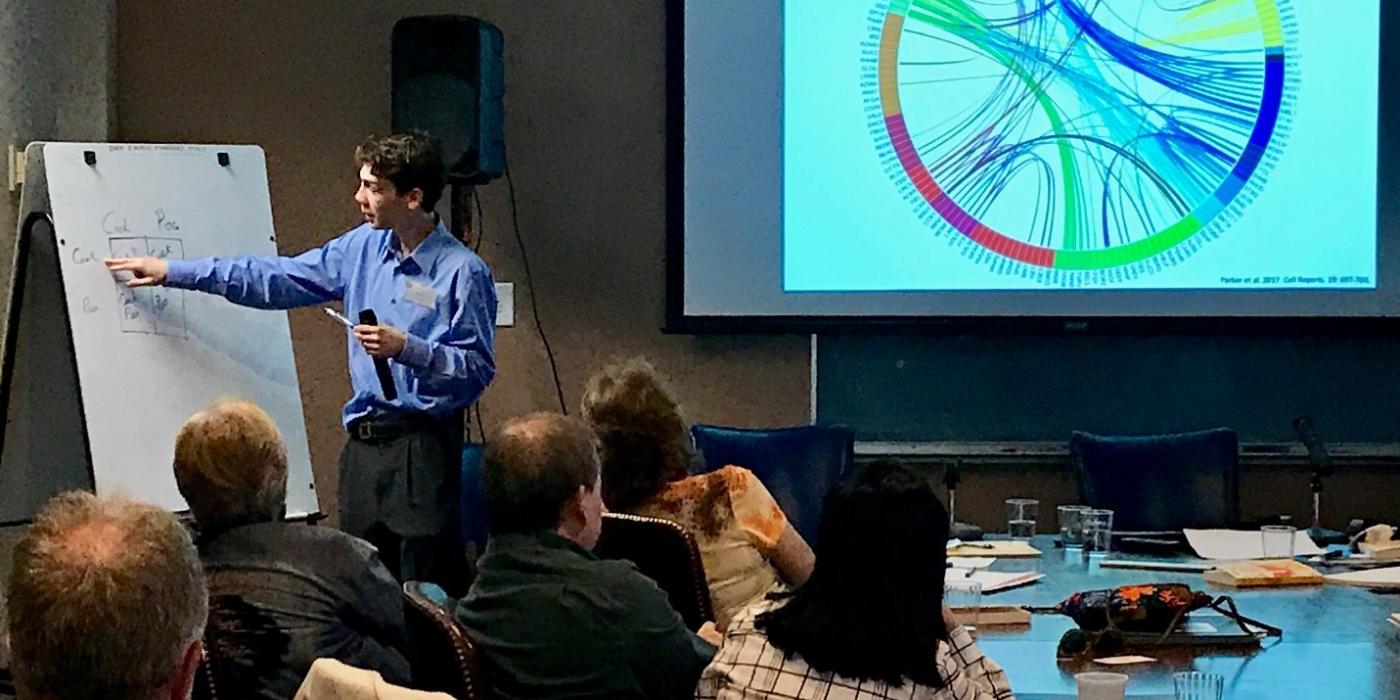Genomics: The New Frontier
A recap of the 2017 spring Conservation Immersion Seminar
On May 10, inquiring minds spent a day with Smithsonian scientists at the fourth annual Conservation Immersion Seminar—Genomics: The New Frontier. The seminar was held at the Zoo’s Rock Creek Science Building where participants learned how genomics can be applied to conservation, saw DNA sequencing first-hand and deciphered pedigree charts.
At this exclusive event, FONZ members and donors explored how scientists from the Center for Conservation Genomics are applying new technology to help save species.
“We thoroughly enjoyed the program and learned a lot in a short amount of time!” - Karen Brown, Circle of Life Member, Smithsonian Legacy Society Member
Genomics is the study of the genome—the complete set of genes or genetic material present in a cell. So, how does genomics help scientists save cheetahs, manage endangered herd animals or determine the evolutionary history of a small tropical bird like the red siskin?
Smithsonian experts broke down the many ways in which genomics supports conservation work, such as understanding the roles of different genes, identifying markers for disease, assessing the genetic diversity or health of a population and examining how a comprehensive pedigree or family tree can inform breeding management—just to name a few!
Conservation Immersion Seminars provide unprecedented access to world-renowned scientists. Attendees have the opportunity to engage in in-depth discussions and hands-on sessions about modern conservation issues and the cutting-edge science being implemented to help save species and their habitats.
We are excited to announce that the series has been extended, and the Smithsonian's National Zoo and Conservation Biology Institute will be hosting an additional seminar this October.
To learn more about the upcoming seminar and how you can participate, contact Molly Dodge at dodgem@si.edu or 540-635-0071.
